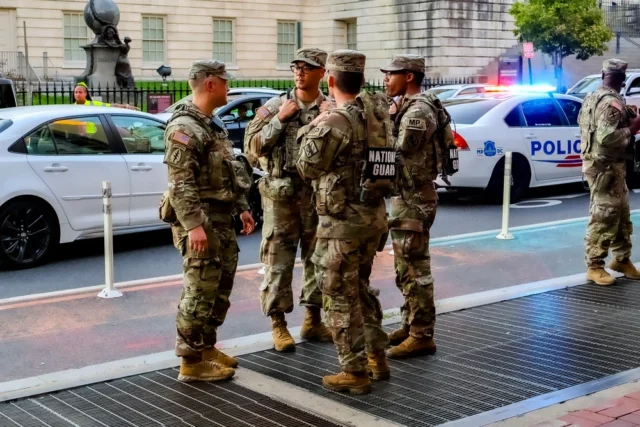
A federal judge has issued a partial temporary restraining order halting the deployment of National Guard troops in Illinois, following a lawsuit filed by state officials against the Trump administration. The deployment, which began earlier this week, involved approximately 500 National Guard personnel—200 from Texas and 300 from Illinois—stationed near a U.S. Immigration and Customs Enforcement (ICE) facility in Broadview. The Trump administration justified the deployment as necessary to protect federal personnel and property amid rising political tensions.
U.S. District Judge April Perry determined that there was “no credible evidence” of a rebellion in Illinois and expressed skepticism about the federal government’s assessment of the situation. She noted that the Department of Homeland Security’s perception of events was “unreliable” and that the deployment could lead to civil unrest requiring a response from local and state law enforcement. The ruling temporarily blocks the deployment, pending further legal proceedings.
The lawsuit has sparked a broader legal battle over the federalization of National Guard troops without state consent. In Oregon, a federal judge had previously blocked the deployment of National Guard troops to Portland, leading to a hearing before the 9th U.S. Circuit Court of Appeals. The court appeared skeptical of the state’s arguments, with judges questioning whether the president’s actions could be legally challenged.
These developments raise significant constitutional questions about the balance of power between federal and state authorities, particularly concerning the deployment of military forces within U.S. borders. As legal proceedings continue, the outcomes could have lasting implications for the future use of National Guard troops in domestic law enforcement operations.
Sources:
Disclaimer
The information contained in South Florida Reporter is for general information purposes only.
The South Florida Reporter assumes no responsibility for errors or omissions in the contents of the Service.
In no event shall the South Florida Reporter be liable for any special, direct, indirect, consequential, or incidental damages or any damages whatsoever, whether in an action of contract, negligence or other tort, arising out of or in connection with the use of the Service or the contents of the Service.
The Company reserves the right to make additions, deletions, or modifications to the contents of the Service at any time without prior notice.
The Company does not warrant that the Service is free of viruses or other harmful components












